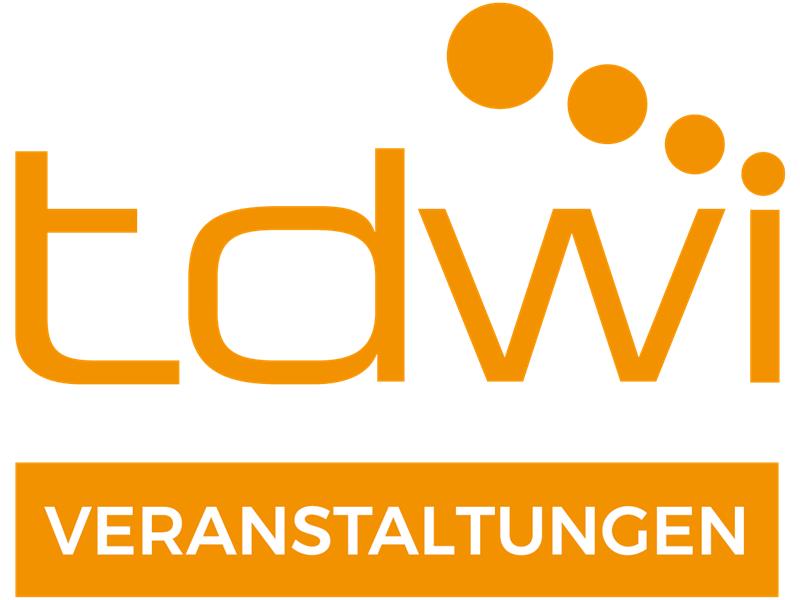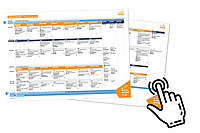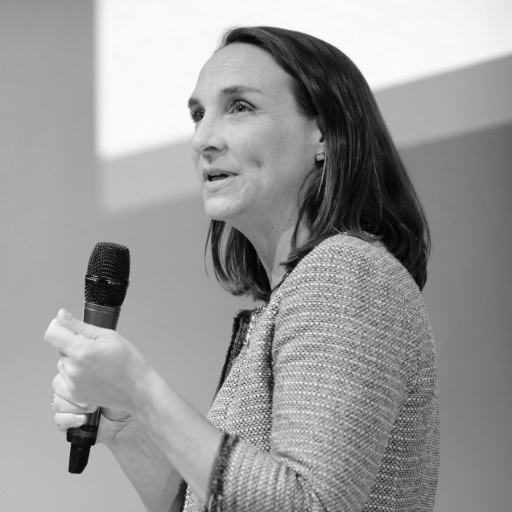
Die im Konferenzprogramm der TDWI München 2022 angegebenen Uhrzeiten entsprechen der Central European Time (CET).
Per Klick auf "VORTRAG MERKEN" innerhalb der Vortragsbeschreibungen können Sie sich Ihren eigenen Zeitplan zusammenstellen. Sie können diesen über das Symbol in der rechten oberen Ecke jederzeit einsehen.
Hier können Sie die Programmübersicht der TDWI München 2022 mit einem Klick als PDF herunterladen.
Track: #Advanced Analytics & AI
- Montag
20.06. - Dienstag
21.06. - Mittwoch
22.06.
What does it take to operationalize machine learning and AI in an enterprise setting? This seems easy but it is difficult. Vendors say that you only need smart people, some tools, and some data. The reality is that to go from the environment needed to build ML applications to a stable production environment in an enterprise is a long journey. This session describes the nature of ML and AI applications, explains important operations concepts, and offers advice for anyone trying to build and deploy such systems.
Target Audience: analytics manager, data scientist, data engineer, architect, IT operations
Prerequisites: Basic knowledge of data and analytics work
Level: Basic
Extended Abstract:
What does it take to operationalize machine learning and AI in an enterprise setting?
Machine learning in an enterprise setting is difficult, but it seems easy. You are told that all you need is some smart people, some tools, and some data. To travel from the environment needed to build ML applications to an environment for running them 24 hours a day in an enterprise is a long journey.
Most of what we know about production ML and AI come from the world of web and digital startups and consumer services, where ML is a core part of the services they provide. These companies have fewer constraints than most enterprises do.
This session describes the nature of ML and AI applications and the overall environment they operate in, explains some important concepts about production operations, and offers some observations and advice for anyone trying to build and deploy such systems.
Mark Madsen is a Fellow in the Technology & Innovation Office at Teradata where he works on the use of data and analytics to augment human decision-making and evolve organizational systems. Mark worked for the past 25 years in the field of analytics and decision support, starting with AI at the University of Pittsburgh and robotics at Carnegie Mellon University. He is also on the faculty of TDWI.
Vortrag Teilen
Künstliche Intelligenz ist schon längst dem Pionierzeitalter entwachsen. Doch um mit dem Einsatz von KI einen echten Mehrwert für das Unternehmen zu schaffen, kommt es auf die qualitativ hochwertige Bereitstellung von Daten an. Hier kommt ML Engineering ins Spiel - ein Konzept zur Bewältigung der hohen Komplexität von Daten bei der Entwicklung von KI-Systemen. Im Vortrag wird eine ML Engineering Roadmap vorgestellt, mit der dieses häufig unterschätzte und doch so kritische Konzept erfolgreich eingesetzt werden kann.
Zielpublikum: Data Engineer, Data Scientist, Unternehmer mit praktischem KI-Interesse
Voraussetzungen: Interesse an KI- und ML-Themen, Grundlagen- bis fortgeschrittene Kenntnisse in den Bereichen Data Science und/oder Data Engineering
Schwierigkeitsgrad: Fortgeschritten
Lars Nielsch ist als Principle Solution Architect Analytics & Cloud bei Adastra tätig. Nach seinem Studium der Angewandten Informatik an der TU Dresden ist er seit 1998 in der BIA-Beratung tätig. Seine besonderen Interessen liegen in den Themen Enterprise BI, Large Databases, Data Engineering (ETL-Design), Data Science (MLOps) und Big-Data-Architekturen (Data Vault, Data Lake, Streaming).
As the data mesh paradigm takes the industry by storm, the conversation deep dives into the architecture, neglecting the socio-organizational element. Data driven organizations must invest not only in infrastructure but also data organization and culture.
Target Audience: Executive, senior business managers
Prerequisites: None
Level: Basic
Jennifer Belissent joined Snowflake as Principal Data Strategist in early 2021, having most recently spent 12 years at Forrester Research as an internationally recognized expert in establishing data and analytics organizations and exploiting data's potential value. Jennifer is widely published and a frequent speaker. Previously, Jennifer held management positions in the Silicon Valley, designed urban policy programs in Eastern Europe and Russia, and taught math as a Peace Corps volunteer in Central Africa. Jennifer earned a Ph.D. and an M.A. in political science from Stanford University and a B.A. in econometrics from the University of Virginia. She currently lives in the French Alps, and is an avid alpinist and intrepid world traveler.
The real magic of AI lays in well managed data to build and train the underlying models. Accordingly, streamlined data management process are essential for success in AI. In this session we are going to discuss data management for AI and ask questions like 'What is data management for AI?', 'Are there difference to well-known approaches from BI & Analytics' and 'Do we need special AI data engineers?'.
TDWI Community Talk is an open format to discuss current topics in the area of data analytics within the TDWI community.
Target Audience: All data entheusiasts
Prerequisites: No prerequisites
Level: Basic
Extended Abstract:
The area of artificial intelligence is currently trending and transforms BIA landscapes in many organizations. There are many new initiatives and promises, however, to build all these fancy applications a well-thought data management is necessary. Nevertheless, the discussion of AI often focuses various models and cool programming languages and the underlying data engineering is often neglected. This is why this session focuses data management for AI and discusses approaches and best practices with the TDWI community.
The goal of this session is:
- Give the audience an overview what 'Data Management for AI' means and what basic terms are.
- Discuss current best practices and challenges with experts and the audience.
- Reflect different views on differences between processes in AI and BI, the role of a data engineer, software tools and many more.
The 'TDWI Data Schnack' is an interactive format that wants to engange the discussion in the TDWI community. It provides a plattform that highlights different aspects of a current topic and inspires discussions between experts and other community members. Therefore, the course of a Data Schnack session contains a short introduction talk that introduces a basic understanding of the topic. Followed by a panel discussion with experts from different fields. Lastly, an open discussion integrates the audience to share knowledge between all participants.
Julian Ereth is a researcher and practicioner in the area of Business Intelligence and Analytics. As a solution architect at Pragmatic Apps he plans and builds analytical landscapes and custom software solutions. He is also enganged with the TDWI and hosts the TDWI StackTalk.
Timo Klerx ist Gründer und Data Scientist von und bei paiqo und hilft Kunden bei der Konzeption und Umsetzung von Projekten im Bereich Artificial Intelligence / Data Science / Machine Learning.
Die ersten Berührungen mit AI hatte Timo in einem Forschungsprojekt zur automatischen Manipulationserkennung von Geldautomaten.
Bevor er sein eigenes Startup gründete, sammelte er Erfahrungen in einem anderen Data Science Startup und fokussierte sich dort auf den Bereich Machine Analytics inkl. Use Cases wie Predictive Maintenance und Predictive Quality.
Weiterhin engagiert sich Timo bei diversen Data Science Meetups in Paderborn, Münster und gesamt NRW.
Malte Lange ist Produktverantwortlicher für Data Analytics bei der Finanz Informatik, dem zentralen Digitalisierungspartner in der Sparkassen-Finanzgruppe.
Die Schaffung von datengetriebenen Banking Lösungen ist seit 2019 sein Themenschwerpunkt. Unter anderem verantwortet er die omni-channelfähige Kundenansprache „Next Best Action“ für die digitale Finanzplattform OSPlus und sorgt für die Weiterentwicklung der zentralen Data Analytics Plattform für analytische Anwendungsfälle im OSPlus. Gemeinsam mit Partnern in der Sparkassen-Finanzgruppe entwickelt er neue datengetriebene Lösungsansätze für Sparkassen, um das Potential vorhandener Daten zu realisieren.
Vortrag Teilen
Machine learning and AI have changed the world of data processing and automation at a breathtaking pace, at the cost of turning algorithms into hard-to-control and monitor black boxes.
We present methods and concepts of explainable AI that aim to open the black box and tame these algorithms.
Target Audience: Decision-Makers/Stake Holders in AI & model development, Data Scientists
Prerequisites: general awareness of modeling pipeline and challenges, no coding/math skill required
Level: Basic
Maximilian Nowottnick is a Data Scientist at the full-service data science provider Supper & Supper GmbH from Germany. He has a B.Sc. and a M.Sc. in Physics and extensive knowledge in developing AI solutions in the areas of GeoAI and Mechanical Engineering. He was one of the driving engineers to develop the first SaaS solution of Supper & Supper, called Pointly for 3D point cloud classification.
Natural Language Processing (NLP) allows us to deeply understand and derive insights from language, ultimately leading to more automated processes, lower costs, and data-driven business decisions.
Google is recognized as a market leader in AI and has built a range of solutions incorporating NLP to address a myriad of business challenges. This talk will introduce a few possible solutions, as well as some business use cases on how to incorporate them in a variety of industries.
Target Audience: Middle and upper-level management, Business users with AI/machine learning challenges, BI/Data professionals
Prerequisites: Basic knowledge of machine learning and cloud technology, interest in NLP
Level: Intermediate
Catherine King is a Customer Engineer at Google Cloud and is a Google Cloud Certified Professional Data Engineer. She works with customers in the Public Sector and supports them in digital transformations, big data analytics, and artificial intelligence implementations. Before Google, she worked for many years in the Translation Industry designing Machine Translation models for enterprise clients.
Catherine holds an MSc in Data Science and is passionate about decision science and data-driven cultures.
Vortrag Teilen
Vortrag Teilen
Vielfach wird als Vorgehensmodell in Data-Science-Projekten CRISP-DM herangezogen. Dabei handelt es sich um ein Modell, das über 20 Jahre alt ist, nicht mehr weiterentwickelt wird und aus einer Zeit stammt, die weit vor Big Data lag.
Im Beitrag werden einige der in der Data Science eingesetzten Vorgehensmodelle ausgehend von CRISP-DM vorgestellt. Dabei werden generelle Anforderungen an solche Modelle formuliert und mit dem DASC-PM ein neuer Ansatz vorgestellt, der die aktuellen Herausforderungen datengetriebener Projekte zu adressieren versucht.
Zielpublikum: Sämtliche Personengruppen, die an Data-Science-Projekten beteiligt sind oder den Einsatz von Data Science im Unternehmen planen
Voraussetzungen: Teilnehmer:innen sollten idealerweise erste Erfahrungen mit Data-Science-Projekten gesammelt haben
Schwierigkeitsgrad: Einsteiger
Extended Abstract:
Der Siegeszug von Data Science in den Unternehmen hält weiterhin an und ein Ende ist derzeit noch nicht absehbar. Immer mehr Unternehmen bauen Data-Science-Teams auf und integrieren Data Science in ihre Wertschöpfungskette. Dabei gilt es, verschiedene organisatorische Fragen zu klären, soll die Nutzung der entwickelten Modelle in der Produktion effizient gelingen. Eine wichtige Frage stellt dabei das Vorgehensmodell dar, an dem sich das Data-Science-Team orientiert. Vielfach wird hier ein Modell herangezogen, das über 20 Jahre alt ist, nicht mehr weiterentwickelt wird und aus einer Zeit stammt, die weit vor Big Data lag: der Cross Industry Standard Process for Data Mining (CRISP-DM). In den 1990er-Jahren für Data Mining-Projekte entwickelt, dominiert CRISP-DM noch heute den Bereich der in der Data Science Community eingesetzten Vorgehensmodelle (vgl. u.a. www.datascience-pm.com/crisp-dm-still-most-popular).
In dem Beitrag soll zunächst die historische Entwicklung der in der Data Science eingesetzten Vorgehensmodelle nachvollzogen werden. Neben dem KDD-Prozess (Knowledge Discovery in Databases) und natürlich CRISP-DM werden auch die Foundational Methodology for Data Science (FMDS) von IBM und der Team Data Science Process (TDSP) von Microsoft kurz vorgestellt. Als Beispiel für eine Anpassung von CRISP-DM an die Welt des Machine Learning und der Data Science wird darüber hinaus das CRISP-ML(Q) diskutiert.
Anschließend werden generelle Anforderungen an ein Data-Science-Vorgehensmodell formuliert. Auf welche Besonderheiten sollte hier geachtet werden und wo muss und sollte ein solches Modell über den Klassiker CRISP-DM hinausgehen? Angesichts der rasanten Entwicklung und Verbreitung von Data Science haben sich in der Praxis weitere Anforderungen ergeben, die nun Eingang in neue Konzepte finden sollten.
Seit 2019 arbeitet eine Gruppe von Wissenschaftler:innen und Mitarbeiter:innen verschiedener Unternehmen an einem neuen Konzept. Mit DASC-PM (DAta SCience - Process Modell) wird ein noch junger Ansatz für ein Vorgehensmodell vorgestellt, in dem CRISP-DM zu einem vollwertigen Vorgehensmodell für Data Science ausgebaut wird. Neben dem Prozessmodell umfasst DASC-PM eine Zuordnung der Aufgaben im Rahmen der verschiedenen Arbeitsschritte, ein Rollenkonzept, eine Bestimmung der jeweils notwendigen Skills sowie eine Betrachtung der Schnittstellen. Daraus ergibt sich ein ganzheitliches Modell, das es Data-Science-Teams ermöglicht, ein effektives und effizientes Vorgehen zu etablieren. Dabei ist DASC-PM so generisch angelegt, dass es sowohl im Bereich Scientific Data Science, also im Forschungsumfeld, als auch im Bereich Applied Data Science, beispielsweise im unternehmerischen Umfeld, eingesetzt werden kann.
Der Vortrag zeigt den aktuellen Stand von DASC-PM und gibt einen Ausblick, wie das Vorgehensmodell in den nächsten Schritten weiter ausgebaut werden soll.
Im letzten Teil des Beitrags werden anhand kurzer Case Studies Einsatzmöglichkeiten von DASC-PM präsentiert. Dabei soll die Nutzung von DASC-PM in unterschiedlichen Unternehmenstypen betrachtet werden.
Verschiedene Branchen werden ebenso herangezogen wie der Einsatz in unterschiedlichen Unternehmensgrößen.
Prof. Dr. Uwe Haneke ist seit 2003 Professor für Betriebswirtschaftslehre und betriebliche Informationssysteme an der Hochschule Karlsruhe (HKA). Dort vertritt er u. a. die Bereiche Business Intelligence und Projektmanagement im Fachgebiet Informatik. Den Bachelor Studiengang 'Data Science' an der HKA hat er maßgeblich mitgestaltet. Seine Publikationen beschäftigen sich mit den Themen Open Source Business Intelligence, Data Science, Self-Service-BI und Analytics.
Prof. Dr. Michael Schulz hält eine Professur für Wirtschaftsinformatik, insb. analytische Informationssysteme an der NORDAKADEMIE - Hochschule der Wirtschaft in Elmshorn und ist Studiengangsleiter des Master-Studiengangs 'Applied Data Science'. Seine Interessenschwerpunkte in Lehre, Forschung und Praxisprojekten liegen in der Business Intelligence und der Data Science. Er ist einer der Autoren des DASC-PM-Konzeptes.
Vortrag Teilen
This session introduces AI-driven automation and looks at the building blocks needed to automate operational tasks and decisions.
It discusses ground-breaking innovation that opens up the next stage in data and analytics for the data driven enterprise. It provides key information on how to use data, analytics and AI to automate decisions to significantly shorten time to reduce costs, reduce risks and seize opportunities to grow revenue.
Target Audience: Chief Analytics Officer, Chief Data Officer, Data Architects, Data Scientists, Business Analysts
Prerequisites: Basic knowledge of analytics and machine learning
Level: Advanced
Extended Abstract:
According to some analysts, the hyper-automation software market opportunity in 2025 will be as much as $850Bn. There is no doubt that if you can scale automation it will help companies significantly reduce costs and outperform their competitors in revenue growth. There are many things that can be automated including tasks, processes, IT and DevOps operations. However, there are so many things needed to make this happen. Given this opportunity, this session introduces AI-driven automation, looks at the building blocks needed to make it happen.
- What is AI-driven automation and what can it do?
- Size of the AI marketplace
- Use case opportunities
- Automating human tasks using AI-driven robotic process automation
- Intelligent document processing
- The power of human and AI-driven orchestration
- Automation building blocks
- Business goals
- Process mining
- Data Events, business conditions and event detection
- Data integration
- Machine learning model services to predict outcomes
- Decision services
- Action services (skills that can be automated)
- Intelligent Orchestration - goal driven closed loop automation
- The AI-driven automation process - capture, prepare, analyse, decide, act, optimise
- Human and AI-driven decision and action automation
- Getting started - what needs to be considered?
Mike Ferguson is Managing Director of Intelligent Business Strategies and Chairman of Big Data LDN. An independent analyst and consultant, with over 40 years of IT experience, he specialises in data management and analytics, working at board, senior IT and detailed technical IT levels on data management and analytics. He teaches, consults and presents around the globe.
Vortrag Teilen
Got great ML, analytics, and engineering talent, but need to increase the adoption of the ML and analytics solutions your team produces? Wondering how to design decision support applications and data products that actually get used and generate business value? If you're tired of making 'technically right, effectively wrong' data products that don't get used, this session will help!
Before you can generate business value, your data product first has to be used and adopted. That success boils down in part to the UX you afford users. After all, the UX is the perceived reality of your data product. However, the skills for designing a great UI/UX are different than those required to do the technical side of analytics, AI/ML, and engineering. Users don't want your data outputs; they want clear answers and actionable decision support—and that’s what we’ll learn how to do together.
The workshop is a reduction of my full 8 week training seminar. In the ½ day workshop, we will focus on learning 3 main skills via a mixture of lecture, peer discussion, and active exercises/participation. You will learn:
- How to measure your data product’s utility and usability so that everyone on the team has a shared understanding of what a “good UX” is and how it will lead to business value
- How to use 1x1 interview research to uncover hidden stakeholder and user needs before it’s too late (and your solution can’t be easily changed)
- How to use low-fidelity prototyping and sketching as a means to get aligned with your users and stakeholders and avoid building an incorrect “requirements-driven” solution
MAXIMUM ATTENDEES: 48
MATERIALS YOU WILL NEED:
- A laptop is required for participation
- Willingness to participate in activities that require pair learning
- Willingness to be open and share with your table and the room when called upon to contribute
- For best results, you should have some sort of strategic decision support application, data tool, or data product in mind to which you hope this training can be applied when you return to work. Design is best learned through doing, and having a real project to apply it to will accelerate that learning.
Target Audience: Directors, VPs, and principal data product leaders building custom enterprise data products and decision support applications for which adoption is critical to success and the generation of business value. Participants often come from ML and software engineering, analytics, and data science domains, yet also have a responsibility to ensure solutions are useful, usable, and valuable to the business. The training will not help you if you're interested in only working alone on implementation, coding, statistics, modeling and making outputs without any regard for whether they serve the audience they are intended to help.
Prerequisites: You're ready to approach your data work differently, with a human-first, data-second approach. You don't think that the reason that data tools/apps/dashboards go unused is because the users aren't 'smart enough' to understand them. You believe it's more interesting, fun, and valuable to produce data products that actually get used, produce value, and change people's lives. You're curious and open to non-analytical approaches to problem solving.
Level: Expert (you can be a design novice but should be a leader in your core field)
Extended Abstract:
Want to increase the adoption of your enterprise data products?
It's simple: your team's AI/ML applications, dashboards, and other data products will be meaningless if the humans in the loop cannot or will not use them.
Yes, they may have asked your team for those ML models or dashboards.
Unfortunately, giving stakeholders what they asked for doesn't always result in meaningful engagement with AI and analytics -- and data products cannot produce value until the first hurdle is crossed: engagement.
Until users actually use, trust, and believe your ML and analytics solutions, they won't produce value.
'Just give me the CSV/excel export.' How many times have you heard that -- even after you thought your team gave them the exact ML model, dashboard, or application they asked for?
No customers want a technically right, effectively wrong data product from your team, but this is what many data science and analytics teams are routinely producing -- because the focus is on producing outputs instead of outcomes. The thing is, the technical outputs are often only about 30% of the solution; the other 70% of the work is what is incorrectly framed as 'change management' or 'operationalization' -- and it all presumes that the real end-user needs have actually been surfaced up front.
If you want to move your team from 'cost center' to 'innovation partner,' your team will need to adopt a mindset that is relentlessly customer-centered and measures its success based on delivering outcomes. However, this is a different game: it's a human game where ML/AI and analytics is behind the scenes and customers' pains, problems, jobs to be done, and tasks are at the forefront. Enter human-centered design and data product management: the other skills that modern data science and analytics teams will need if they want to become indispensable technology partners to their business counterparts.
This talk is for data product leaders who have talented technical teams, but struggle to regularly deliver innovative, usable, useful data products that their customers find indispensable.
You've heard for 20 years how Gartner and other research studies continue to predict limited value creation from enterprise data science and analytics engagements, with 80% of projects on average failing to deliver value.
MIT Sloan/BCG's 2020 AI research shows that companies who are designing human-centered ML/AI experiences that enable co-learning between technology and people are realizing significant financial benefits.
Leaders aren't repeating yesterday.
If your data science and analytics requires human interaction before it can deliver any business value, you won't want to miss this session with Brian T. O'Neill -- the host of the Experiencing Data podcast and founder of Designing for Analytics.
Brian T. O'Neill helps data product leaders use design to create indispensable ML and analytics solutions. In addition to helping launch several successful startups, he's brought design-driven innovation to DellEMC, Tripadvisor, JP Morgan Chase, NetApp, Roche, Abbvie, and others. Brian also hosts the Experiencing Data podcast, advises at MIT Sandbox, and performs as a professional percussionist.
Das Verfahren der Sequenzanalyse ist in der Molekularbiologie State of the Art bei der Entschlüsselung der menschlichen DNA. Wir entwickeln ein Verfahren für den effizienten Einsatz der Sequenzanalyse für verschiedene Bedürfnisse unserer Kunden. Durch das Verfahren lässt sich nahezu jede Form von Verhaltens- und Ereignismustern klassifizieren, interpretieren und optimieren. Die Bandbreite der Einsatzmöglichkeiten reicht vom 'klassischen' Kundenverhalten im Online-Shop über das Churn & Fraud bis zur Analyse von personalisierten Kaufentscheidungen.
Zielpublikum: Data Scientist, Data Engineer, Project Leader, Decision Makers, Project Owner, Stakeholder, Project Manager, Big Data Analysten, eCommerce, Business-Analysten
Voraussetzungen: Erfahrung im Bereich Data Science, Big Data Analytics, AI, Geschäftsprozessoptimierung, Business Consulting, Untersuchungsdesign.
Schwierigkeitsgrad: Fortgeschritten
Der Diplom-Soziologe und Mathematiker Alexander Gorbach verfügt über 18 Jahre praktischer Erfahrung im Bereich Data Science. Im Rahmen von über 30 branchenübergreifenden Kundenprojekten befasst er sich mit wissenschaftlich geprägten statistischen Verfahren, um Businessprozesse und die damit verbundenen KPI seinen Kunden zu optimieren.
Vortrag Teilen
USE CASE: DKV Mobility
Das Tagesgeschäft der DKV Treasury-Abteilung ist von sehr hohen Ein- und Auszahlungen geprägt. Damit das Unternehmen weiterhin erfolgreich agieren und zahlungsfähig bleiben kann, ist eine gute operative Planung essenziell. In Zusammenarbeit mit avantum wurde diese Planung auf das nächste Level gehoben. Mithilfe von intelligenten Machine-Learning-Methoden wird täglich eine Prognose der Liquidität für die kommenden Wochen auf Tagesbasis erstellt. Wir stellen Ihnen die Ausgangslage, die Herausforderungen und die Lösungen vor.
Zielpublikum: Data Scientist, Controller, Planner, Finance, DWH Architects, Project Manager, CFO
Voraussetzungen: Basiswissen
Schwierigkeitsgrad: Einsteiger
Extended Abstract:
Fortführung des obigen Abstracts: [...] Die Planungslösung wurde mit einer Software auf Basis von IBM Planning Analytics with Watson und dem IBM SPSS Modeler implementiert. Zur Erhöhung der Prognosegüte wurden externe Variablen eingefügt und Muster in den Zahlungen der einzelnen Cashflow-Kategorien untersucht. In diesem Vortrag stellen wir Ihnen die Ausgangslage, die Herausforderungen und die Lösungen vor.
Thomas Olak ist Consultant bei der avantum consult GmbH. Seit 2020 berät er Kunden in diversen Predictive-Analytics- sowie Data-Science-Projekten. Sein Fokus liegt neben der Datenmodellierung vor allem auf der Prognose von Finanzkennzahlen und Predictive Maintenance.
Daniel Sabel ist Treasurer beim DKV EURO SERVICE GmbH + Co. KG mit dem Fokus auf das zentrale Liquiditäts- und Währungsmanagement, M&A Integration, verschiedene Projektarbeiten sowie der Weiterentwicklung der Treasury-Abteilung. Zuvor war Daniel bei KPMG im Finanz- und Treasury-Management für verschiedene nationale und internationale Projekte zuständig.
Die KI hält Einzug in vielen Bereichen der Autoindustrie, insbesondere autonomes Fahren oder intelligente Fertigungssysteme stehen im Fokus. Aber auch abseits dieser Hot Topics schreitet die datenbasierte Revolution voran. In diesem Vortrag legen wir den Fokus auf die Vertriebssteuerung.
Die Möglichkeiten eines datenbasierten Vertriebs aber auch die Herausforderungen auf dem Weg dorthin werden anhand einer konkreten Initiative bei unserem Mutterkonzern beleuchtet.
Hierbei beleuchten wir vor allem die Etablierung einer konzernweiten digitalen Plattform, die sowohl die Zentrale als auch die Märkte bei Reporting und Steuerung ihres Vertriebsgeschäfts unterstützt. Dabei ermöglicht die Plattform auf sämtliche vertriebsrelevante Daten (Sales, Finance, Wettbewerb) in einem Tool zuzugreifen und diese verknüpft auswerten zu können. Die Lösung wird zudem Schritt-für-Schritt interaktiver und intelligenter gestaltet, um KI-basierte Prognosen und Empfehlungen zu ermöglichen.
Als Fazit wollen wir aufzeigen, wie ein lernendes und flexibles Ökosystem aussehen könnte und welcher Weg für die Industrie ein sinnvoller sein könnte, um eine flexible, KI-basierte und maßgeschneiderte Vertriebssteuerung zu etablieren.
Zielpublikum: alle Interessierte
Voraussetzungen: keine
Schwierigkeitsgrad: Einsteiger
Dr. Maximilian Hausmann ist Principal und Leiter des Data Science & Strategy Teams bei rpc - The Retail Performance Company, einem Joint Venture der BMW Group und der h&z Unternehmensberatung. Er arbeitet an der Schnittstelle zwischen Business und IT und entwickelt gemeinsam mit seinem Team kundenzentrierte Datenstrategien und generiert mit den richtigen Use Cases echten Mehrwert. Seit mehr als 12 Jahren berät er Unternehmen aus den unterschiedlichsten Branchen und unterstützt sie auf dem Weg zum datengetriebenen Unternehmen.
Als Berater, Trainer und Coach unterstützt Dr. Maximilian Hausmann seine Kunden bei der Konzeption und Umsetzung von unternehmensweiten Datenstrategien und befähigt Mitarbeiter, die Chancen einer datengetriebenen Arbeitsweise zu nutzen.
Vortrag Teilen
Vortrag Teilen
Ein live Use-Case aus der Immobilienwirtschaft:
Durch die gewachsenen, vielfältigen, teils proprietären Systemlandschaften bestehend aus diversen Applikationen und Lösungen, stehen Unternehmen branchenübergreifend vor den großen Herausforderungen einer effizienten Systemarchitektur, Schnittstellenkonfiguration, sowie eines qualitätsgesicherten, homogenen Datenaustauschs. Wir haben uns diesen Herausforderungen angenommen.
Der Trend geht von einem monolithischen Aufbau der Systemlandschaft in Richtung Micro-Services für mehr Autonomie, Skalierbarkeit und einer gesteigerten Datenqualität durch Automatisierung.
Gemeinsam mit unserem Kunden BMO Real Estate Partners Germany freuen wir uns Ihnen live einen intelligenten Lösungsansatz – eine Cloud-Basierte Plattform für Datenintegration und Datenaustausch – vorzustellen. Dank der agil entwickelten Anwendung namens IP:X konnten wir fehleranfällige, manuelle Prozesse zur Datenvalidierung von Mietvertragsdaten und Finanzinformationen der Immobilienportfolios durch vielfältige Automatisierungen ablösen. Neben der ausgezeichneten Datenqualität profitieren die Teams der Property-, Fonds- und Asset-Manager ebenso, wie das Datenmanagement nun von einer Reduktion der prozessualen Durchlaufzeiten und einer erheblichen Effizienzsteigerung.
In unserem Anwendungsfall verwenden wir eine effizient verzahnte Kombination aus gegenwärtig modernsten und solidesten Technologien: MEAN Stack (IBM Cloudant, Express, Angular, Node.js) im IBM Cloud Umfeld (Continuous Integration / Continuous Delivery, git, IBM Cloud Functions, Cloudant (NoSQL), REST API, Auth0).
Als ein Early-Adopter beleuchten wir das Zusammenspiel der jeweiligen Technologien, sowie die insgesamt erreichte Effizienzsteigerung und teilen hilfreiche Erfahrungswerte – auch zur agilen Entwicklungsmethode per CI/CD (Continuous Integration/Continuous Delivery).
Zielpublikum: Project leader, decision makers, Cloud Experts
Voraussetzungen: Basic knowledge in Cloud, Continuous Integration / Continuous Delivery. Experience in integration and exchange platforms
Schwierigkeitsgrad: Advanced
Alexander Gusser ist als Lead Expert Innovation & Technology für Business Intelligence und Data Analytics Projekte bei GMC² verantwortlich. Leidenschaftlich kombiniert er innovative Technologien miteinander und findet auf kreative und experimentelle Art neue Ansätze, um fachliche und technologische Herausforderungen erfolgreich zu lösen.
Besonders reizt ihn das Spannungsfeld zwischen der Entwicklung eines ganzheitlichen Lösungskonzepts und der hands-on Umsetzung, sowie dem tatsächlichen Go-live.
Holger Gerhards ist Gründer und geschäftsführender Gesellschafter der Business Intelligence und Data Analytics Beratung GMC² GmbH. Seit über 30 Jahren ist er im BI Kontext beratend tätig und für seine Kunden von Mittelstand bis Konzern im Einsatz. Gemeinsam mit seinem erfahrenen, interdisziplinären Team entwickelt er optimale BI-Strategien und findet passgenaue Lösungen.
Laut Gerhards sollten Entscheidungen intelligent und datengestützt sein. Gekonntes Information Design und eine aussagekräftige Datenvisualisierung liegen ihm dabei besonders am Herzen. Als Mitglied der IBCS® Association und als IBCS®-zertifizierter Consultant gibt er Impulse für zukunftsfähiges Reporting und Dashboarding.
André Tischer verantwortet als Director Corporate Development und Schlüsselperson die digitale Transformation des Fonds- und Immobilienunternehmens BMO Real Estate Partners Germany. Zusammen mit seinem Team entwickelt er wegweisende Lösungen für eine zukunftsfähige, agile Unternehmenssteuerung.
Einen besonderen Fokus legt er dabei auf das stetige Hinterfragen von Geschäftsprozessen, das Suchen nach innovativen Verbesserungsmöglichkeiten und deren zielgerichtetes Implementieren. Hierbei sollte stets der Mensch, sein Wesen und sein Handeln in den Fokus gerückt werden. Denn nur dadurch lassen sich aus Ideen - füreinander und miteinander - Lösungen zufriedenstellend gestalten.
Vortrag Teilen






















